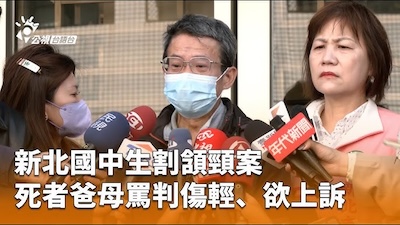The catastrophic breach of the Matainan Creek landslide dam in Hualien County in 2025 caused massive flooding and devastation across local communities. In the wake of this disaster, society responded with sympathy and solidarity. Volunteers, popularly known as the “Shovel Heroes,” rushed into the disaster zone to clear mud and debris, while countless individuals, corporations, and civic groups donated money and resources. Yet, paradoxically, the official disaster relief account established by the Hualien County Government was met with resistance and even boycott. Many citizens openly declared that they would rather donate to non-governmental organizations or volunteer groups than give money to the county government. This phenomenon reflects deeper issues within Taiwan’s governance and public trust, which can be analyzed from several angles.
First and foremost, the crisis of trust is the most critical reason. Over the years, after multiple natural disasters in Taiwan, official donation accounts have repeatedly been accused of poor transparency, delayed distribution, or even misuse. Hualien County Government, in particular, has faced criticism in the past for opaque practices in post-disaster reconstruction, budget allocation, and project execution. As a result, many citizens doubted whether donations to the official account would truly reach victims in need. Some feared that the money might be redirected toward publicity or administrative overhead. This accumulated skepticism meant that, from the very beginning, the county’s account suffered from a credibility deficit.
Secondly, political factors have played a major role. The Hualien County leadership has long been associated with specific political factions, and controversial policies and rhetoric have fueled partisan divides. A segment of society worried that donations could be used as political capital, allowing local authorities to claim credit and bolster their image rather than serve disaster victims impartially. This perception made many donors prefer giving to independent charities, religious organizations, or grassroots volunteer groups, which appeared free from political interference.
Third, lack of transparency in the county’s mechanisms exacerbated public doubt. While the government did announce the amount of funds received, detailed information about how the money would be spent, when it would be distributed, and according to what criteria was insufficient. In contrast, many civic groups and volunteer teams provided real-time updates on social media, showing exactly how donations were used, what supplies were delivered, and which households benefited. This stark comparison between the immediacy of civil society and the sluggishness of bureaucracy made the official account seem inefficient and untrustworthy.
Fourth, the rise of grassroots volunteerism also shifted donor behavior. The “Shovel Heroes” movement highlighted the immense power of ordinary citizens in disaster relief. Many donors either participated personally or witnessed volunteers’ hard work through media coverage. They felt their money could have more immediate and visible impact if given directly to these groups, rather than passing through layers of administrative procedures. The image of volunteers sweating in mud with shovels contrasted sharply with the county government’s slow and formalistic approach, creating a preference for direct support.
Finally, the weakness of monitoring and oversight deepened suspicion. In principle, government relief accounts should be audited and supervised. In practice, however, the oversight mechanisms often lack independence or rigor, leaving doubts about whether donations are managed properly. The absence of credible third-party review reinforced the fear that funds could be mishandled. Without strong, external accountability, it became nearly impossible for the county government to win back the public’s confidence.
Taken together, the boycott of Hualien County’s official relief account was driven by a combination of historical mistrust, political polarization, insufficient transparency, the surge of grassroots volunteerism, and inadequate oversight. Restoring credibility will require far more than urging citizens to donate; it demands institutional reforms. The county must establish real-time information disclosure platforms, invite independent third-party audits, and actively collaborate with civil society organizations. Only by demonstrating genuine openness, fairness, and accountability can local governments hope to repair their damaged trust and ensure that official relief accounts fulfill their intended purpose—pooling resources efficiently and delivering aid to disaster victims effectively.
In conclusion, the boycott of the Hualien County relief account was not a temporary outburst of emotion but the result of long-standing systemic weaknesses. The disaster revealed both the strength of Taiwan’s civic solidarity and the fragility of governmental trust. If lessons are learned and reforms are pursued, future relief efforts could combine the efficiency of centralized coordination with the passion and credibility of grassroots mobilization. Without such changes, however, official donation accounts will continue to face resistance, leaving the heavy responsibility of relief to ordinary citizens rather than institutions of governance.
Author: Cathy Lin



